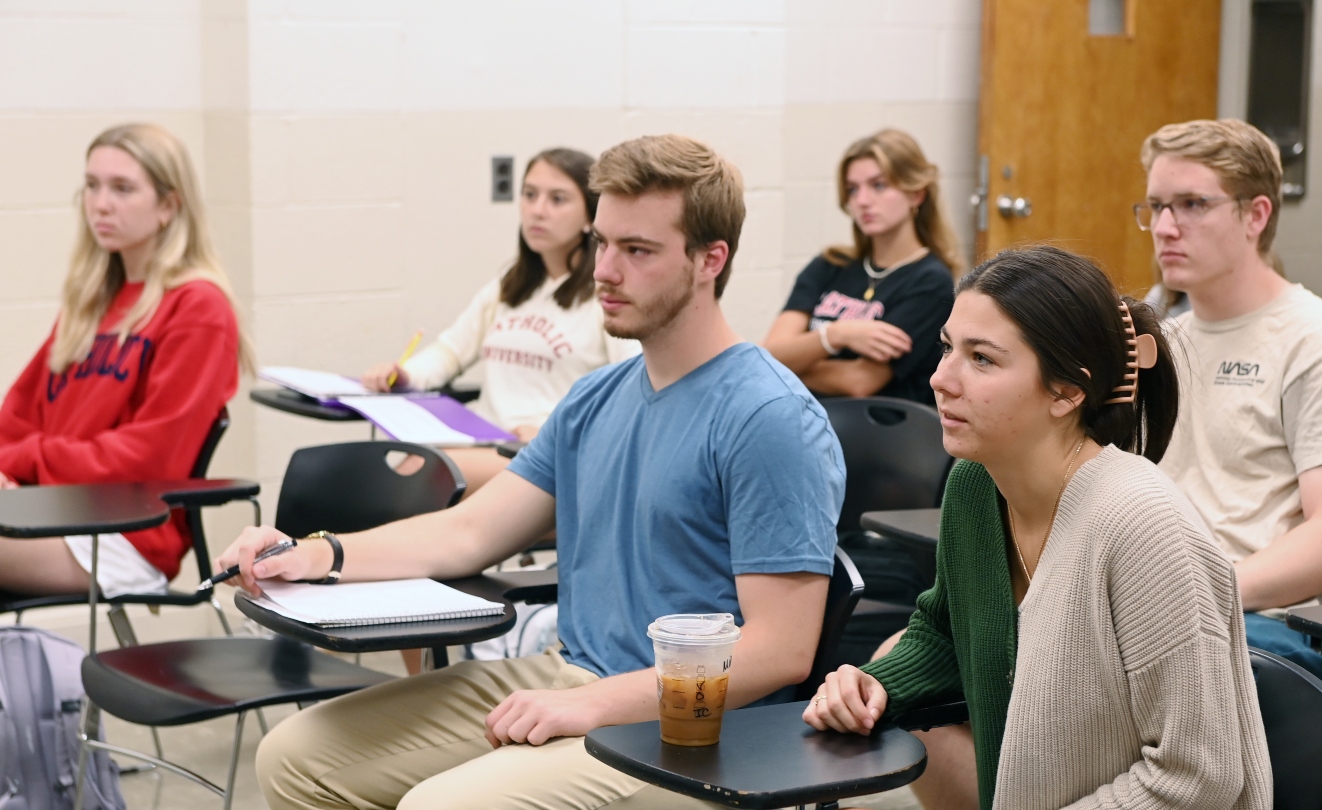Overview | Gateway Courses | Pathways | Cornerstone Symposium
Overview
The foundation of the program is humanities-centered courses based on readings from a wide array of times and cultures. Students engage with those readings at a deep, reflective level, and then branch out to incorporate local and global realities and imperatives of citizenship. Cornerstone Gateway courses explore diverse cultures and perspectives, and lead to discussions aimed at questions that really matter: how to live your life deeply and well; how to contribute to the neighborhood, the nation, and world; and how to meet the distinct challenges facing society — from the perspective of each student’s area of interest including politics, business, religion, and healthcare.
All Catholic University students participate in the First-Year Experience (FYE), a foundational liberal education core of the first-year curriculum. The FYE brings first-year students together in small Learning Communities (LCs) for a shared, yearlong experience. Within the LCs, students take a sequence of four core classes in philosophy, theology, and English. Students form bonds through their LCs as they navigate the first year of college together, often making friends that last well beyond the college years.
Cornerstone students get to know each other through their shared LC. In their first semester, they take courses in Classical Philosophy and Rhetoric and Composition (ENG 101C includes readings selected for the Cornerstone Program). In their second semester, most students take Modern Philosophy, Foundations in Theology, and the first Cornerstone Gateway course. They take the second Gateway Course in the fall of their sophomore year.
Program Course Requirements
For students in the Schools of Engineering or Architecture:
- ENG 101C: Writing & Rhetoric
- ENG 206: Transformative Texts I: The Individual and Community
For all other students:
- ENG 101C: Writing & Rhetoric
- ENG 206: Transformative Texts I: The Individual and Community
- HIST 208: Transformative Texts II: Citizenship and Belonging
Pursuing a pathway is not required to remain in the Cornerstone Program, but students are strongly encouraged to finish one.
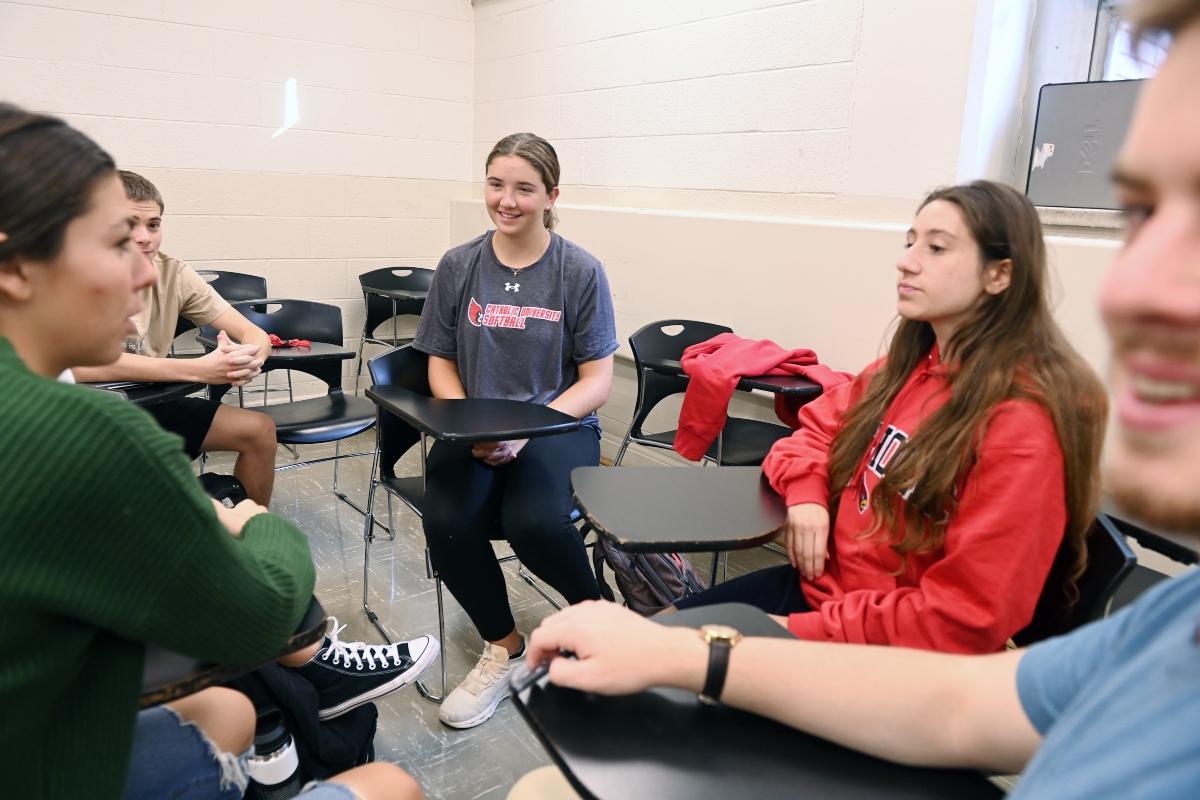
Gateway Courses
The Cornerstone Program is planned around some of the world’s best works of literature. These culturally and intellectually diverse transformative texts challenge students to grow and engage as well-rounded scholars through thoughtful classroom conversations with peers and faculty members.
The Gateway courses, offered exclusively to Cornerstone students, revolve around common readings of transformative works of literature on the themes of citizenship and community. These discussion-based courses emphasize the humanities as a way of considering and pursuing meaning and purpose in life and stress various dimensions of good citizenship, and the nature of democracy.
Transformative Texts I: The Individual and Community (ENG 206)
Considers the foundations for citizenship in education, in family and friendship, and in community through discussions of great works of literature. This course fulfills the Liberal Arts Curriculum “Explorations in Literature” requirement. Sample readings:
- The Odyssey, Homer
- Antigone, Sophocles
- The Souls of Black Folk, W. E. B. Du Bois
- Emma, Jane Austen
- The Adventures of Huckleberry Finn, Mark Twain
Transformative Texts II: Citizenship and Belonging (HIST 208)*
Considers the foundations for citizenship in historical documents and works of literature that have shaped American identity, that engage strife within a pluralistic society, and that consider crucial issues that extend beyond national borders. This course fulfills the Liberal Arts Curriculum "Foundations in History or Political Theory" requirement. Sample readings:
- The Federalist Papers
- United States Declaration of Independence
- Constitution of the United States
- Democracy in America, Alexis de Tocqueville
- "Letter from Birmingham Jail," Martin Luther King, Jr.
- Song of Myself, Walt Whitman
- Julius Caesar, William Shakespeare
- Fratelli Tutti, Pope Francis
- The Inheritance of Loss, Kiran Desai
*HIST 208 is not required for students in the Schools of Engineering or Architecture.
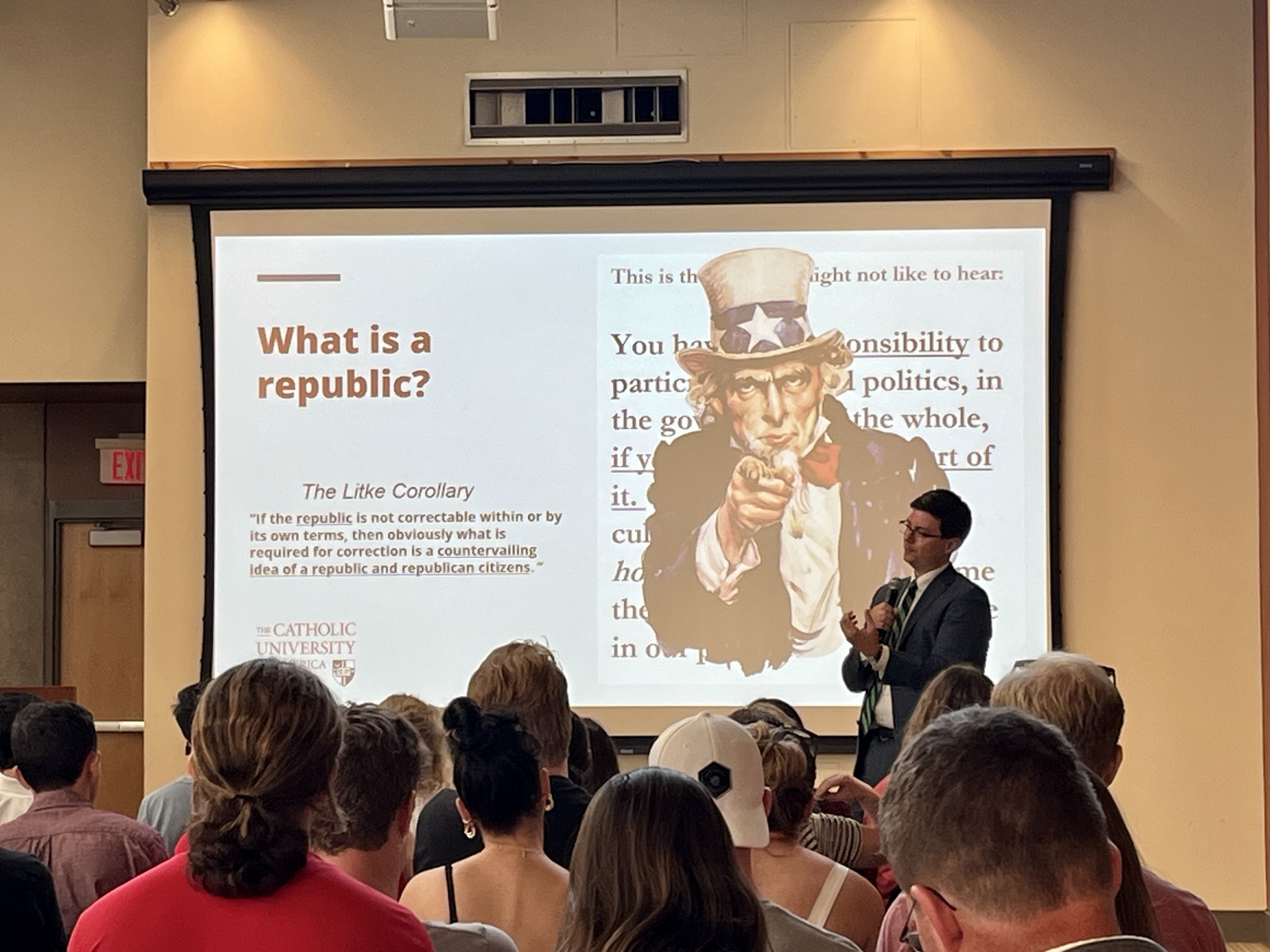
Pathways
After these “Gateways” into the program, students choose from four Pathways based on their interests and majors. These include: Medical Humanities, Philosophy, Politics & Economics, Global Scholars, and Research Scholars. Pathways include grouped courses through the University’s liberal arts curriculum; study abroad opportunities; internships; experiential learning opportunities; and extracurricular activities related to each Pathway.
The Cornerstone Pathways support a student's major studies to form an enhanced and highly engaged college experience, and uniquely prepare students for today’s workforce and post-graduate study.
Cornerstone Symposium
A unique feature of the Cornerstone Program is a one-credit humanities course taught by faculty across the university that furthers the discussion-based inquiry pursued in the Transformative Texts courses.
Cornerstone Symposium (SAS 210)
This one-credit course is only open to Cornerstone students and has no prerequisites. A seminar-style reading of a great work, focused study of a major author or artist, examination of a significant historical event, or discussion of humanities-based responses to one of the questions taken up in Transformative Texts I and II. Course requirements include participation in weekly discussions, a reading journal, and a short final essay. Students pursuing a pathway may choose to substitute one of the pathway courses by taking SAS 210 three times (see the Pathways page for more information).
-
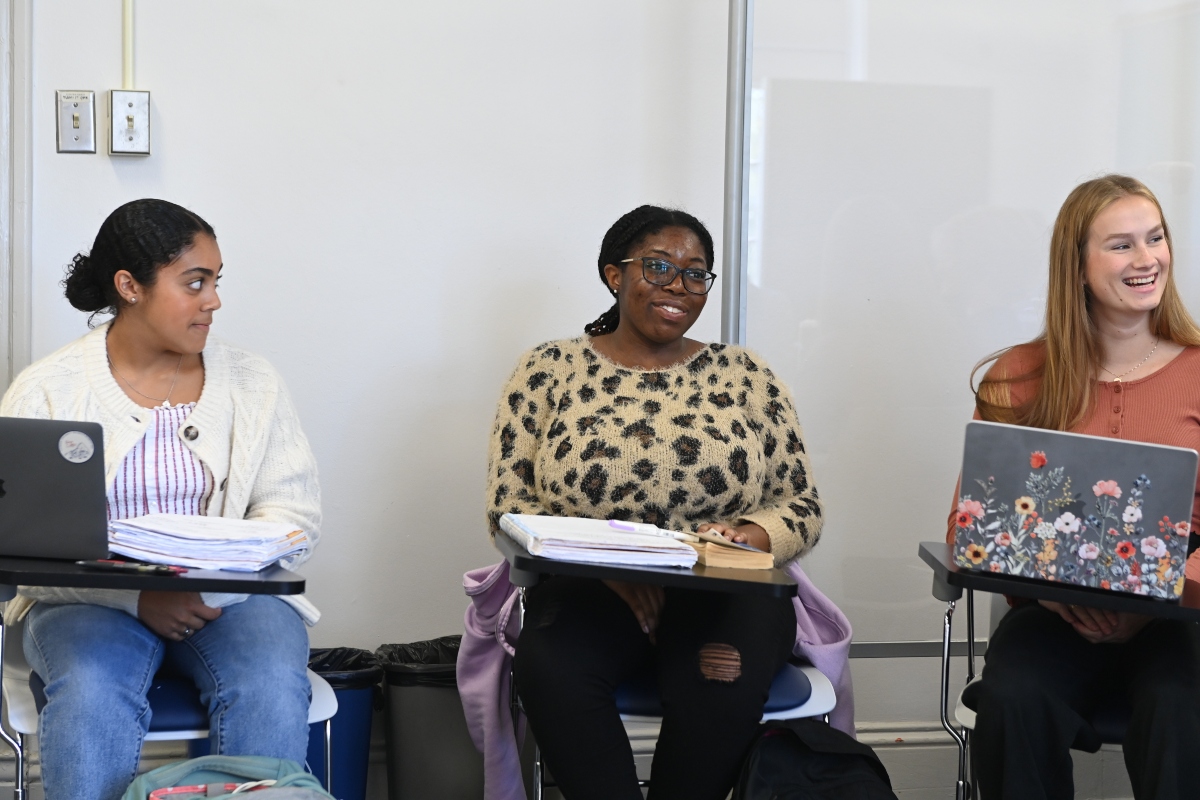
Cornerstone Pathways
Learn More -
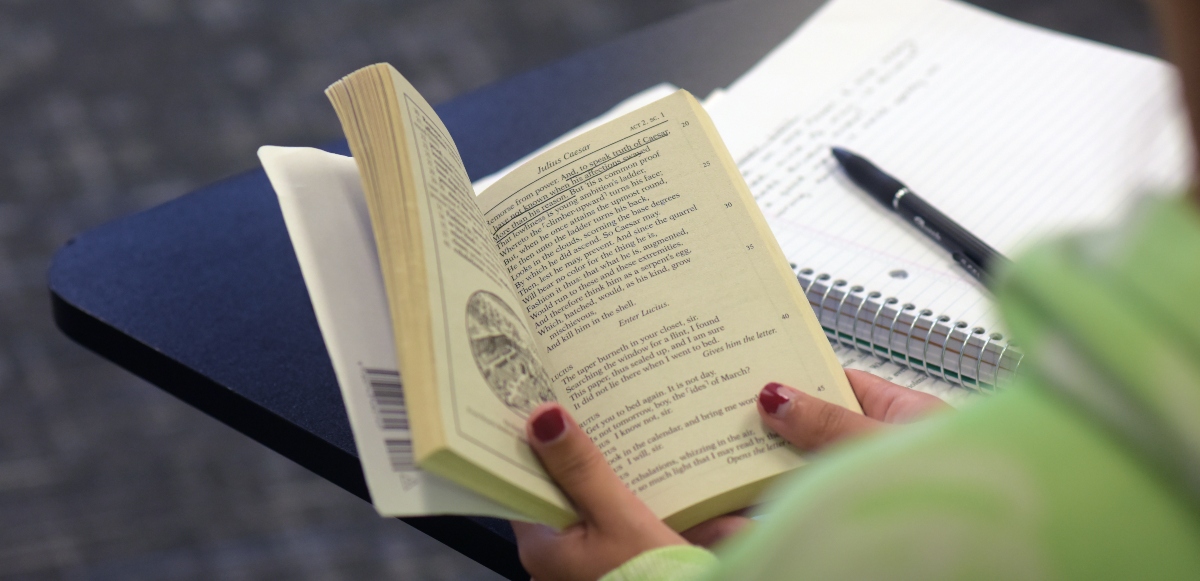
Pathway FAQs
Learn More

